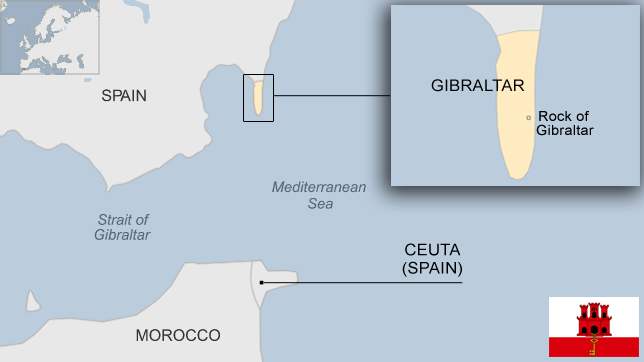Brexit: How Gibraltar could opt to remain in the EU
- Published
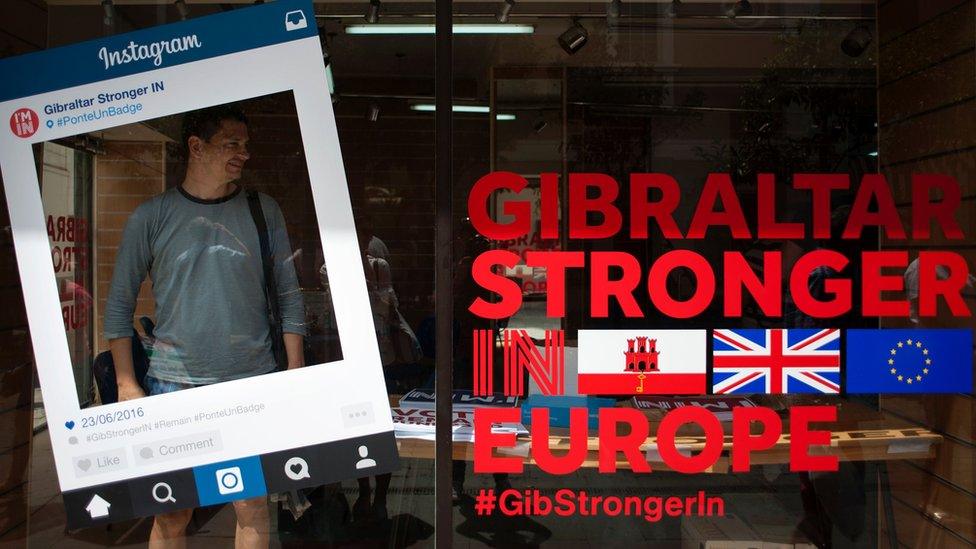
Many in Gibraltar fear the economic consequences of leaving the EU
If there is one place in the UK that definitely doesn't want to leave the EU it is Gibraltar. Residents of "The Rock" voted overwhelmingly - by 96% - to stay in the European Union.
"It was a shock," says Stuart Menez, who runs a small glass-blowing workshop in the centre of town.
Mr Menez started his business 21 years ago, with start-up funds from the EU. Today his priority isn't funding, but access.
"The biggest issue we're facing is a free-flowing border, for people visiting Gibraltar and for the goods that we import. The raw material that we buy is exclusively bought from the European Union," he says.
"It has to travel through the European Union to get to us. But if it faces a difficult Spanish border then we have a problem. In the same way it affects us being able to export our goods to the world. So the uncertainty covers every possible aspect of the business."
Gibraltar looks like a little bit of England transported to a rocky outcrop less than 10 miles (16km) from the coast of North Africa: red telephone boxes; bobbies-on-the-beat with their distinctive helmets; Marks and Spencer on the high street.
Above Mr Menez's shop hangs a banner: "Gibraltar Stronger In Europe," it reads. It may seem a little late for that.
But Gibraltar's Chief Minister, Fabian Picardo, is exploring options to keep the Territory in the EU, despite the referendum.
"There are potentially different formulas out there, this is like a kaleidoscope that has not yet settled," he told the BBC.
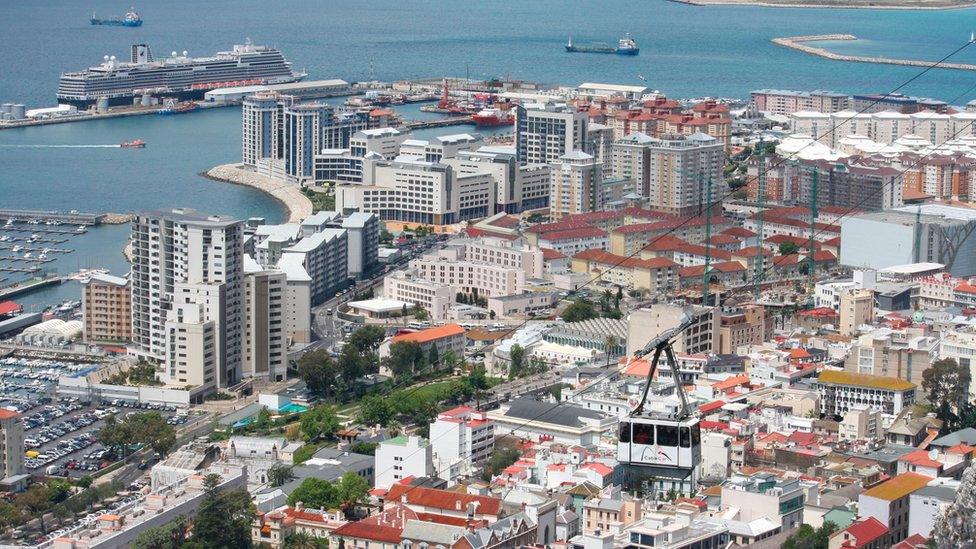
There are "different formulas" to keep Gibraltar in the EU, its chief minister says
One option, which Gibraltar is considering jointly with Scotland's First Minister, Nicola Sturgeon, is the so-called Greenland scenario, whereby parts of the UK could maintain Britain's membership of the EU, while other parts leave.
"That means that we don't have to apply again for access, we simply remain with the access we have today, and those parts that leave are then given a different sort of access," Mr Picardo said.
Spain? No, thanks
One thing Gibraltar's 30,000 residents are even more firm about than their desire to stay in the EU is their sovereignty.
Gibraltar is a British Overseas Territory, ceded to Britain in 1713 under the Treaty of Utrecht.
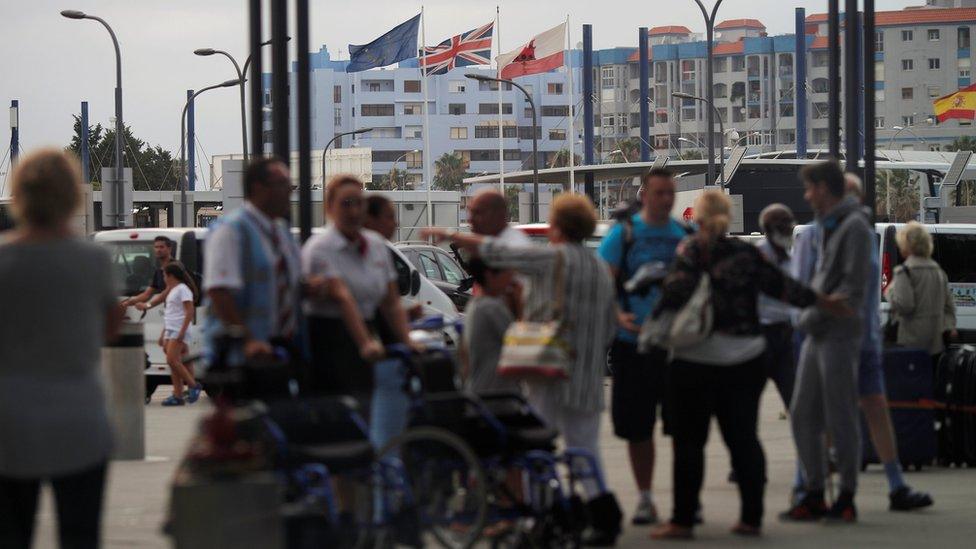
The crossing between Gibraltar and Spanish land could be affected by Brexit
Hours after the referendum result was announced on 24 June, Spain's acting Foreign Minister, Jose Manuel Garcia-Margallo, said: "The Spanish flag on the Rock is much closer than before."
Spanish sovereignty would, of course, be one way of keeping Gibraltar in the European Union. But Gibraltarians dismiss such a suggestion out of hand.
Fabian Picardo, the Chief Minister, said the Spanish Foreign Minister was "wasting his breath." Stuart Menez, the businessman, called the remarks "silly noises emanating from the usual places."
Even across the bay, in the nearby Spanish town of Algeciras, they're not keen on Brexit.
"Right now it means that the pound is lower, and so my wages are lower as well," says Laura Heredia Cabezas.
She has a job filling chicken pies in a supermarket in Gibraltar and is one of about 10,000 Spaniards who travel in and out of Gibraltar for work. Now she worries her daily commute could become more difficult.
"Maybe the government in Spain is being a bit cheeky and they are taking the chance to say they are going to close the frontier."
Ms Cabezas hopes it will not come to that. Unemployment in this part of Spain, Andalucia, is in some places higher than 40%.
And so Gibraltar is a lifeline for many families here, who care more about their jobs than the colour of the flag flying over the Rock.
- Published29 June 2016
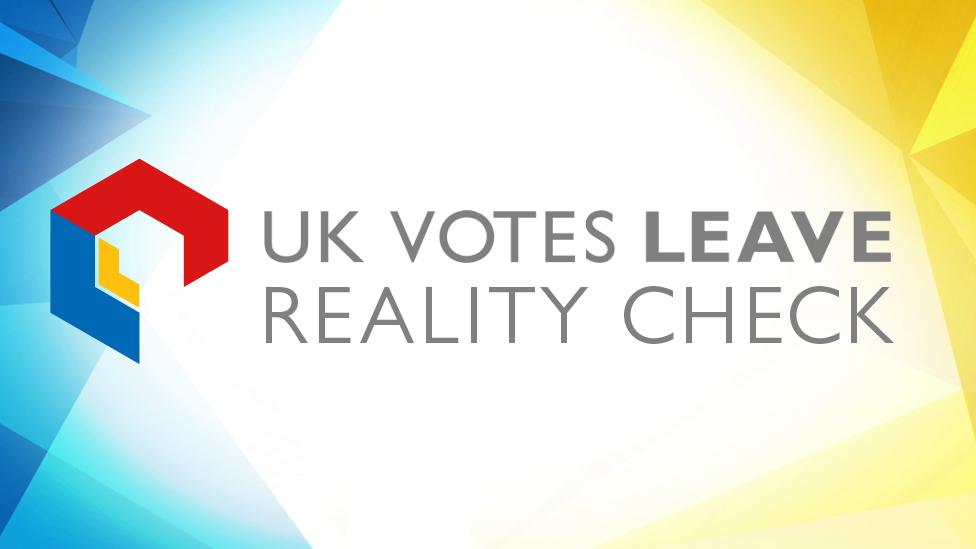
- Published1 July 2016
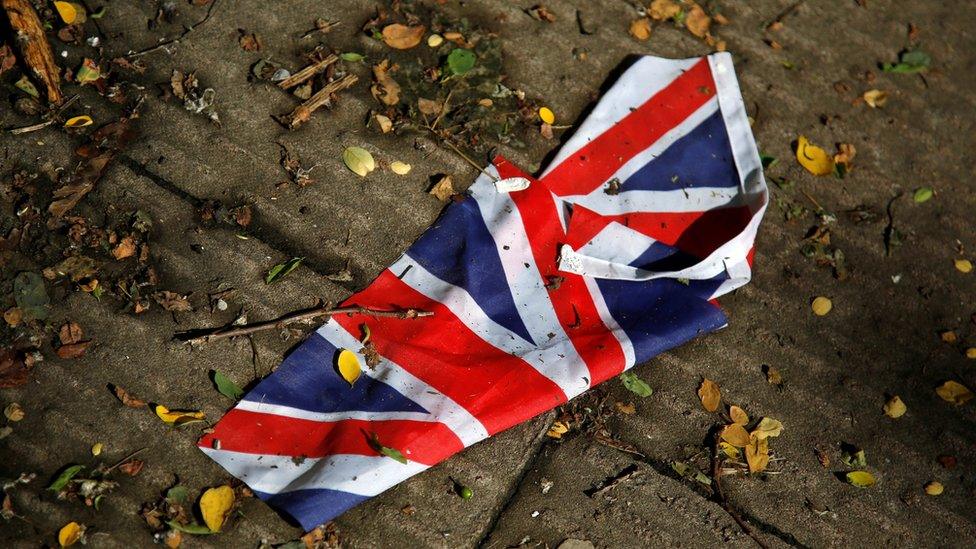
- Published24 June 2016
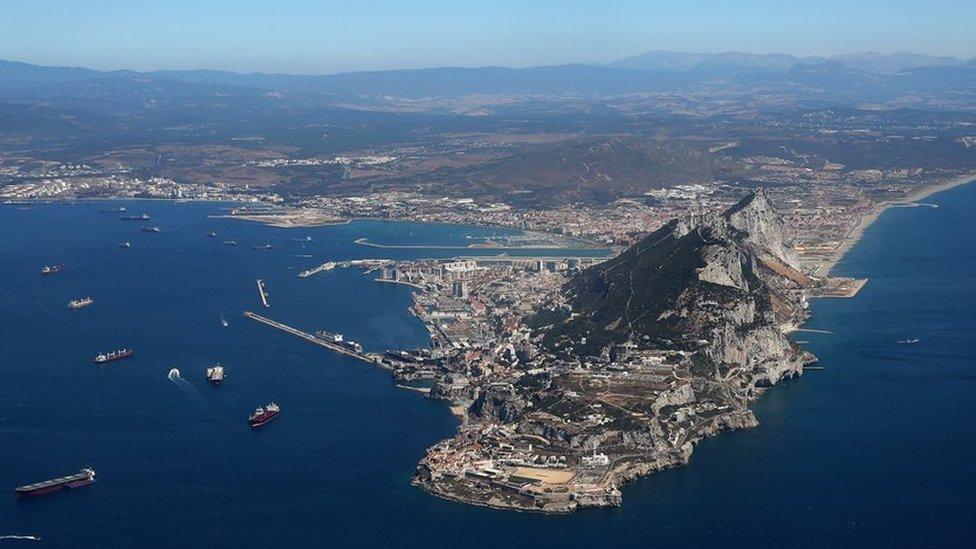
- Published24 June 2016
- Published19 May 2023
